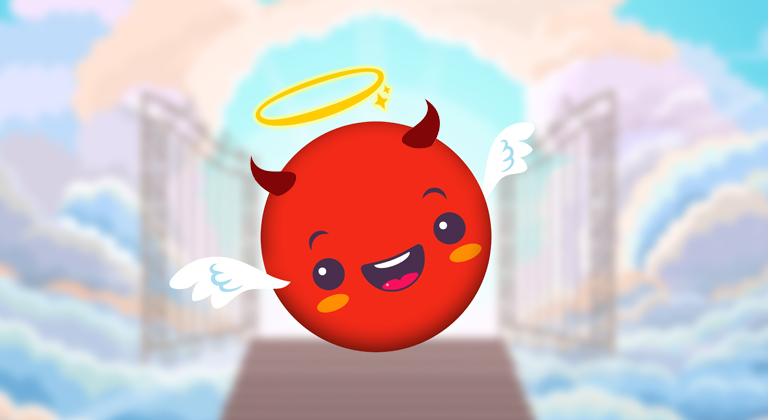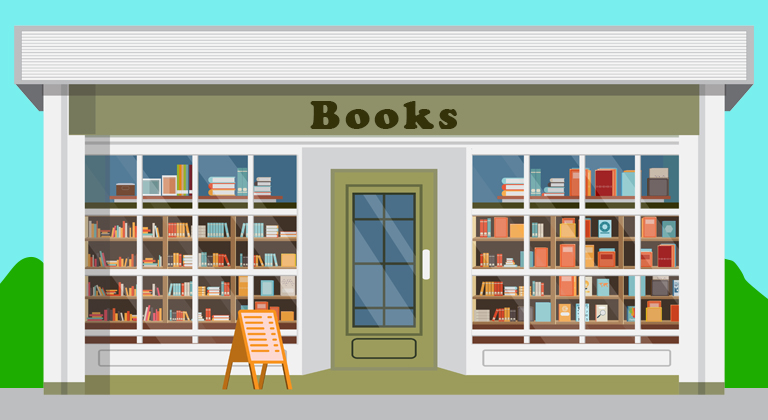What Can Writers Learn by Studying the Novels of Jilly Cooper?
For fans of romantic fiction, the television adaptation of Jilly Cooper’s iconic novel Rivals is a long-awaited celebration of an author who has been shaping the genre for decades. If you haven’t yet discovered the work of this British writer, you might be wondering what all the fuss is about. The fact is, Cooper is more than just a successful novelist. She’s a trailblazer whose wit, charm, and unforgettable characters have earned her a devoted following across generations.
Ginger counts himself among those fans, which is why he’s taken a closer look at the glitz, glamor, and steaminess of her novels to uncover the invaluable lessons they offer to other writers. From her expert use of character and pacing to her sharp dialogue and picturesque settings, Jilly Cooper’s books are a masterclass in storytelling and thus the perfect study choice for for authors looking to hone their skills.
One of hottest new shows to hit streaming services this year is Rivals, a television series on Disney+ adapted from the novel by legendary author Jilly Cooper.
If you’re not British like me, you might not be super familiar with Jilly Cooper – but trust me, you should be! I love her – I often credit her as one of the four most-influential authors in my own writing career, and my entire family used to consider each of her new books an “event novel” that we’d practically fight over getting to read first.
And she’s more than that! Jilly Cooper is nothing less than the doyenne of romantic fiction – often credited as the inventor of the “bonkbuster” novel and an author whose work has been entertaining millions of readers for decades.
Her books are renowned for their witty, racy, and often hilarious stories and characters, and while her work might seem frivolous at first glance, there are many valuable lessons aspiring authors can learn from studying her books – especially those writing in the romance genre.
So this week, I’m going to examine her catalog of books and see if I can’t identify what writers can learn by studying her writing.
Who is Jilly Cooper?
Dame Jilly Cooper was born in Essex, in the UK, in 1937. Always a keen writer, she started her career as a journalist and rose to prominence writing witty articles about marriage, sex, and housework in the 1970s. Her first book was non-fiction, entitled How to Stay Married, and she rode the wave of 1970s feminism in her subsequent non-fiction book How to the Survive from Nine-to-Five. She turned to fiction in 1975 with a series of books known as the “name” novels – Emily, Bella, Imogen, and so on – but it was in 1985 that she exploded onto the literary scene with the first of her “Rutshire” novels.
The Rutshire novels are a series of books about the extramarital exploits of the British upper class in the fictional county of Rutshire. Her first book in the series, Riders, had actually been written a decade earlier, but she left the manuscript on a bus and it took her over a decade to eventually rewrite the story and unleash it onto the bookshelves.
Riders was followed by Rivals, Polo, and The Man Who Made Husbands Jealous – eventually spanning eleven big, chunky novels that featured recurring characters, cross-pollinating plots, and more sex and extravagance than you can shake a stick at. Her books have won legions of fans (myself included) and demonstrate the kind of world-building that fantasy authors would be jealous of – to the point that The Guardian praised “her near-magical ability to conjure up a world and populate it with people for whom you feel a deep affection.”
What makes Jilly Cooper’s books so popular?
1. The Power of Character:
Undoubtedly the main reason Jilly Cooper’s books are so popular is because of her ability to create vivid, larger-than-life characters. From the dashing Rupert Campbell-Black to the strong-willed heroines like Rutshire’s own Georgie Parkin, her characters are instantly recognizable and memorable. They are flawed, funny, and deeply human.
My personal favorite has to be the lynchpin of the Rutshire novels – Rupert Campbell-Black. A prominent figure in all of Cooper’s Rutshire series, he’s particularly front-and-center in the novels Riders and Rivals and he becomes one of those characters we love to hate… and also love.
He’s a great example of how to write a compelling character. Campbell-Black hails from a wealthy and titled family, embodying the epitome of British aristocracy. He’s known for his magnetic personality, often captivating those around him with his wit and charm. Campbell-Black has a reputation for being a notorious womanizer, engaging in numerous affairs throughout the series, but he’s also incredibly competent – both as a talented equestrian, having achieved Olympic success in show jumping, and also as a politician, becoming a Member of Parliament in later novels.
These are the reasons I think characters like Campbell-Black are so memorable:
- Character Depth: Cooper doesn’t shy away from exploring the complexities of her characters. They are multifaceted, with both strengths and weaknesses.
- Character Arcs: Her characters undergo significant transformations throughout the novels. They learn, grow, and evolve, making their journeys compelling.
- Character Chemistry: The chemistry between Cooper’s characters is palpable. Their interactions are witty, romantic, and often downright steamy.
2. The Art of Pacing:
Growing up, each of Jilly Cooper’s new novels was an event in our household. We’d literally fight each other to get our hands on her huge, chunky hardback books. Yet despite being massive novels, they were an absolute pleasure to read and a lot of that came down to her mastery of pacing.
Cooper’s novels are always expertly paced. She knows how to build suspense, create tension, and deliver satisfying payoffs. These are the reasons why:
- Pacing and Plot: Cooper’s plots are fast-paced and full of twists and turns. She keeps readers engaged by constantly introducing new challenges and obstacles for her characters to overcome.
- Pacing and Romance: The romantic tension in her novels is slow-burn, building gradually over time. This allows readers to invest emotionally in the characters and their relationships.
- Pacing and Humor: Cooper’s novels are always laugh-out-loud funny, and part of that stems from her brilliant comic timing; often relieving tension or twisting things around through humorous events or witty dialogue.
3. The Importance of Setting:
Cooper’s novels are often set in picturesque English countryside, particularly the fictional county of Rutshire. The setting is as much a character as the people who inhabit it. In fact, with her novels spanning nearly 40 years of history, Rutshire itself is one of the few parts of her series that remains consistent.
Here’s why I think Jilly Cooper does such a great job with world-building:
- Setting as Character: The settings of her books are used to reflect the mood and atmosphere of the story. They can be both a source of comfort and a catalyst for conflict. From the bright lights of the LA Olympics in 1984 to the rain and overcast skies of England in winter, the settings impact the story almost as much as the characters do.
- Setting as Symbolism: Cooper often uses the setting of her books to symbolize the characters’ inner struggles and desires – for example, Campbell’s illegitimate daughter Perdita only learns of her heritage while abroad in a country in which she didn’t speak the language, throwing real-world confusion into the confusion she faced learning of her father’s identity.
4. The Role of Dialogue:
Jilly Cooper’s dialogue is famously sharp, witty, and often downright hilarious. Dialogue drives the plot forward, reveals character, and creates a sense of authenticity that almost makes it seem like the characters are real people inside your head.
This is actually why adapting her work to cinema or television is so difficult – because each of us have such a vivid impression of who Rupert Campbell-Black is inside our heads that no real-life actor could possibly live up to expectations!
Here’s why I think Jilly Cooper uses dialogue so effectively:.
- Dialogue as Characterization: The way characters speak can reveal a lot about their personalities, backgrounds, and social status.
- Dialogue as Plot Device: Dialogue can be used to advance the plot, introduce new information, or create tension.
5. The Power of Sensuality:
Jilly Cooper’s novels are known for their explicit sexual content. She’s even been hailed as the inventor of the “bonkbuster” novel – marketed for its lurid content the same way Fifty Shades of Grey and other steamy novels have been.
While this might not be for everyone, there is a lot to be learned from her approach to sensuality. All her love scenes are visceral, exciting, and help serve the plot rather than just providing titillation.
- Sensuality and Romance: Almost all of Cooper’s characters are passionate and sensual. Their love scenes are both romantic and erotic. From wife-swapping to threesomes, they push the envelope of what’s considered “acceptable” in polite society, and make all of her books feel like a delicious indulgence when you read them.
- Sensuality and Character: Sensuality can be used to reveal character, to create intimacy, and to explore themes of desire and longing. For example, Rupert Campbell-Black’s dominance is demonstrated through his callous womanizing and twisted kinks.
6. The Importance of Editing:
Jilly Cooper is a master of the craft of writing. Her novels are always well-edited and polished – and while it would be easy to credit her publishers with that, I think it stems more from her career in journalism. She never uses three words when one will do, and she can deliver the perfect adjective in the same way a marksman hits the bullseye. It’s one of the reasons she’s a favorite writer of mine – no less deadly with her words than James Bond creator Ian Fleming.
More than that, though, her dedication to good writing has meant that the name Jilly Cooper has become synonymous with an enjoyable reading experience. Across her dozens of books we all have favorites, but there aren’t any bad ones – and that’s largely due to the professionalism and high standards she’s held to throughout her career.
Conclusion
It’s difficult to truly communicate how much I love the books of Jilly Cooper, or how influential they’ve been to my own writing career. I’m wildly excited to see her work brought to the screen again, even if her “bonkbuster” material has been tamed for airing on a family-friendly network like Disney+. I definitely recommend checking out Rivals and there’s a great 1990s adaptation of Riders around if you can find it.
But the books are where the real magic happens – and by studying the novels of Jilly Cooper, aspiring authors can learn valuable lessons from her. From character development to pacing, encompassing setting, dialogue, and sensuality, Jilly Cooper’s work stands as a testament to the power of storytelling and the importance of writing with passion and conviction.











